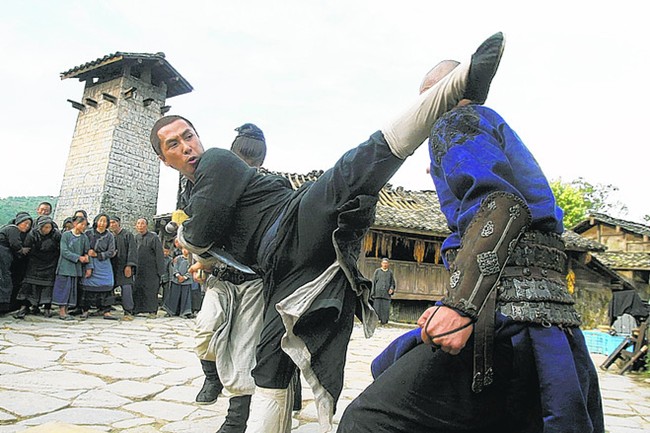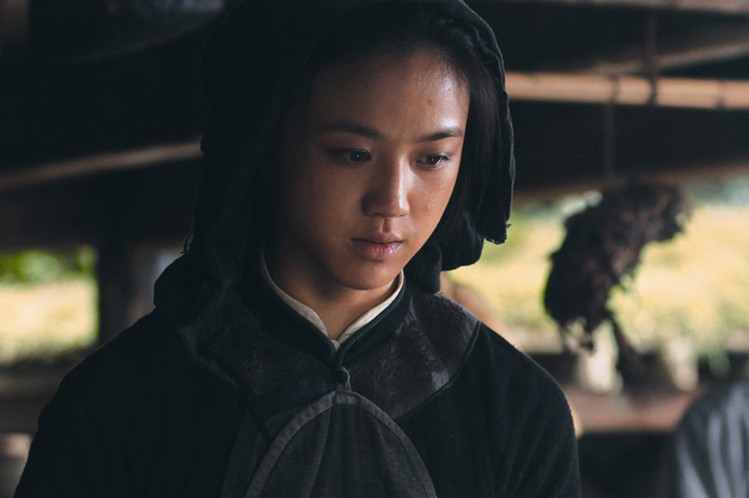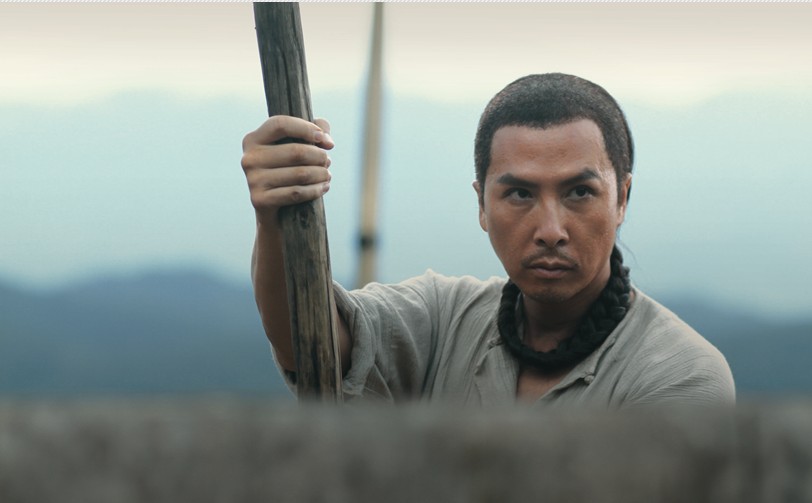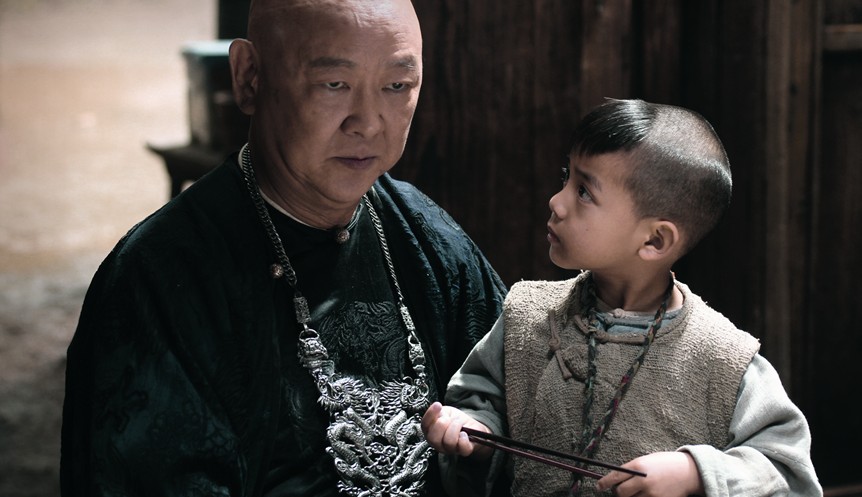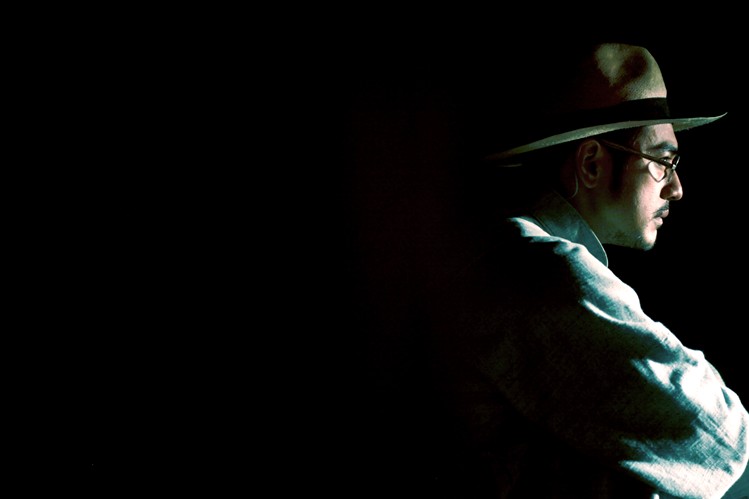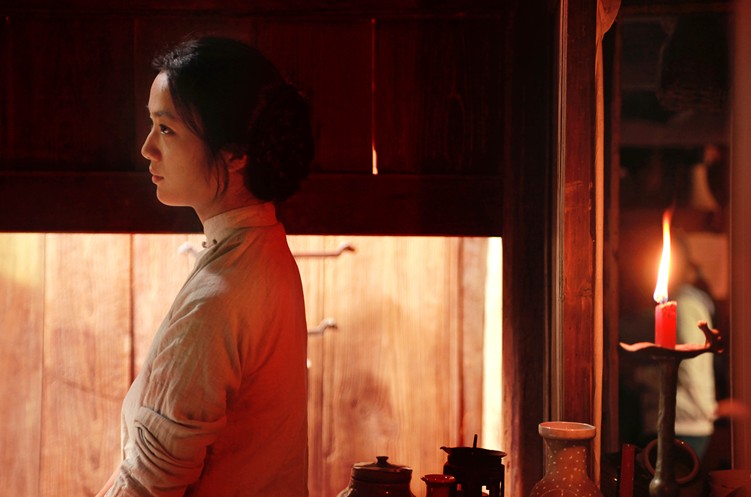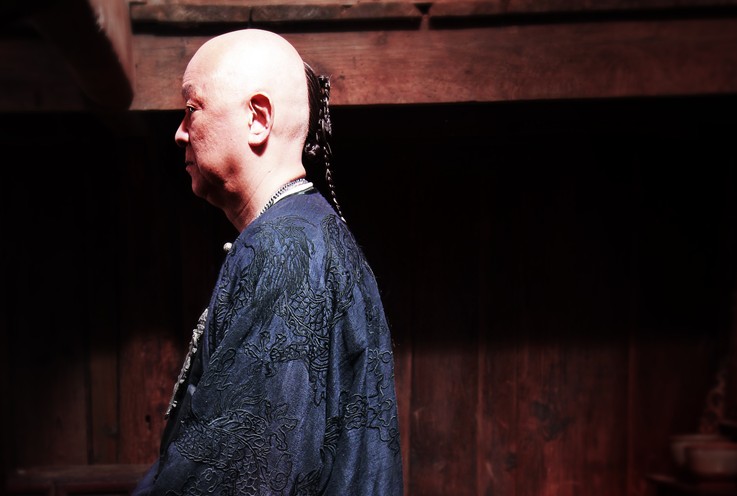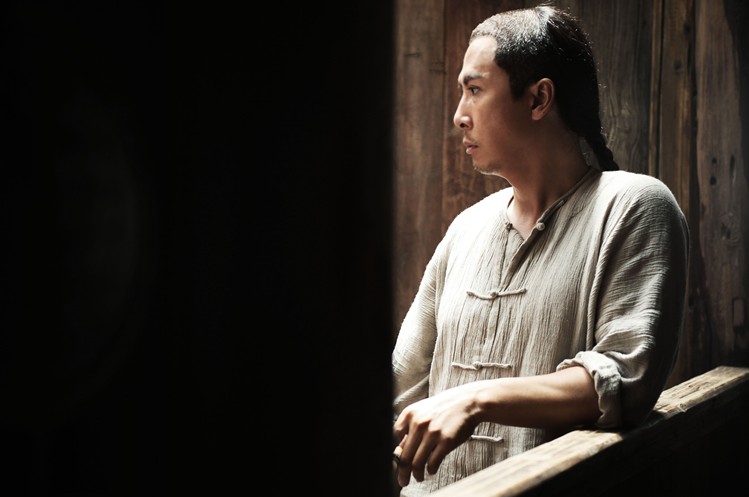HKIFF 2012: an interview with Peter Chan Ho-sun (Filmmaker in Focus)
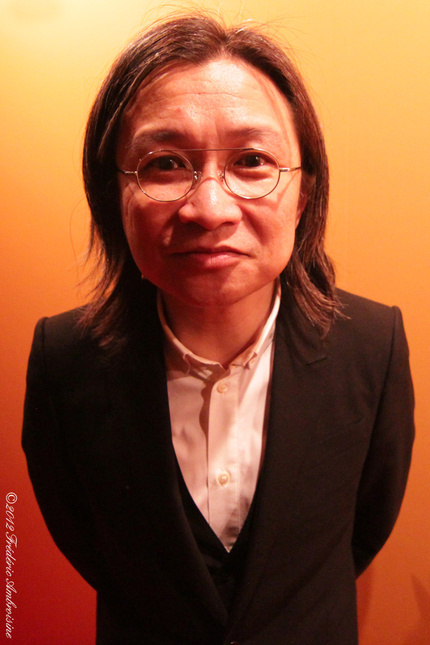
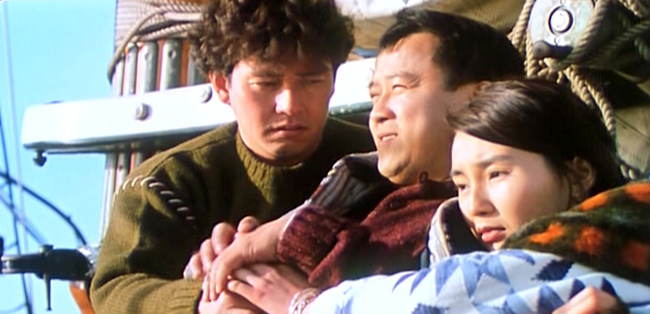 He later co-founded U.F.O. (United Filmmakers Organisation) and produced around 20 movies within five years, including his own successful "He's a Woman, She's a Man" (1994) starring Leslie Cheung and Anita Mui. In 1997, his movie "Comrades, a Love Story" was named one of Time Magazine's 10 Best Movies of the Year, and it also won nine Hong Kong Film Awards.
He later co-founded U.F.O. (United Filmmakers Organisation) and produced around 20 movies within five years, including his own successful "He's a Woman, She's a Man" (1994) starring Leslie Cheung and Anita Mui. In 1997, his movie "Comrades, a Love Story" was named one of Time Magazine's 10 Best Movies of the Year, and it also won nine Hong Kong Film Awards. 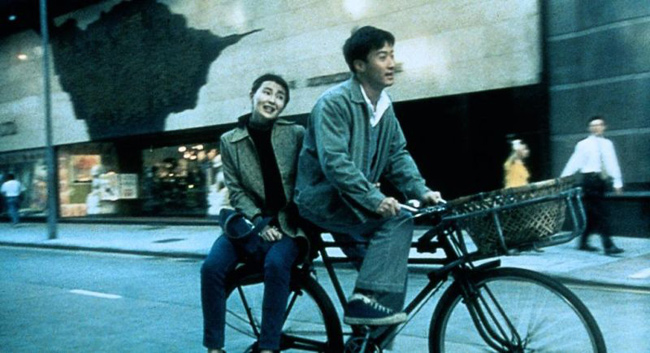 After the 1997 handover, Peter Chan moved to Hollywood to make "The Love Letter", produced by Spielberg's Dreamworks. He moved back to Hong Kong in 2000 and set up Applause Pictures. To re-boost the local industry, he started making co-productions with Thailand ("Jan Dara"), South Korea ("One Fine Spring Day") and China ("The Marriage Certificate").
After the 1997 handover, Peter Chan moved to Hollywood to make "The Love Letter", produced by Spielberg's Dreamworks. He moved back to Hong Kong in 2000 and set up Applause Pictures. To re-boost the local industry, he started making co-productions with Thailand ("Jan Dara"), South Korea ("One Fine Spring Day") and China ("The Marriage Certificate"). 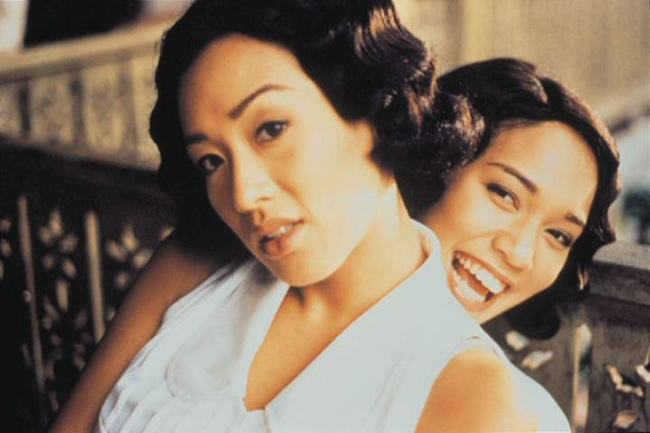
He also produced the horror panasian omnibus movies "Three" and "Three...Extremes"and big-budget movies in China such as the musical "Perhaps Love" (2005), martial arts epic "The Warlords" (2007) and more recently "Wu Xia" (2011).
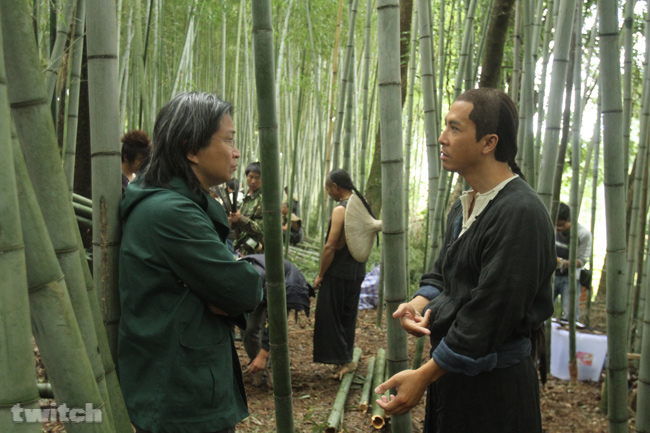 12 films directed and/or produced by Chan were screened March 22-April 3, 2012 at the 36th Hong Kong International Film Festival (HKIFF) section "Filmmaker in Focus". The following short, improvised interview was conducted during the Hong Kong-Asia Film Financing Forum (HAF) party, just after the screening of the HKIFF opening film (Pang Ho-cheung's "Love in the Buff") and a few days before the launch of the Peter Chan exhibition at the Hong Kong Cultural Center.
12 films directed and/or produced by Chan were screened March 22-April 3, 2012 at the 36th Hong Kong International Film Festival (HKIFF) section "Filmmaker in Focus". The following short, improvised interview was conducted during the Hong Kong-Asia Film Financing Forum (HAF) party, just after the screening of the HKIFF opening film (Pang Ho-cheung's "Love in the Buff") and a few days before the launch of the Peter Chan exhibition at the Hong Kong Cultural Center. PC: It's been a while I think, probably six, seven months ago. I didn't know quite what to make of it or what it means to me. I accept it. In the past six months, through working on the book and giving interviews and doing stuff on my part, I started to pick up more of an understanding of what it could mean to me. And it turned out to be a very rewarding experience because it takes me back down my own memory lane and goes back to my roots; how I worked, and how I got to be where I am today. And also it's a sort of re-evaluation of the first half of my life and career, and also to re-evaluate myself to decide what I should be doing next.
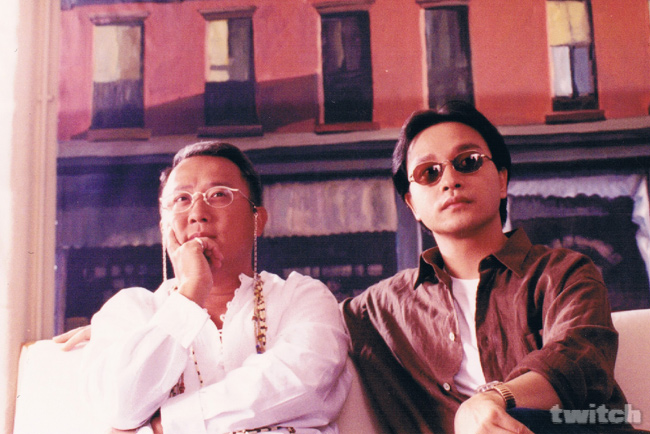
FA: Your recent movie "Wu Xia" is a martial art epic. You've done one before, "The Warlords". Do you plan to keep on with this new direction, or was it just an opportunity to work on that type of movie?
PC: I wish that it were so simple that we do something and it works, and then we could continue to do it. First of all, the market situation would not permit that. The market is changing very rapidly and changing all the time. And it's almost like, if something works, you have to change immediately. It's not like you can actually ride on the past successes or formulas that you have. So every movie we need to reinvent ourselves, which is difficult. And at the same time, as a filmmaker if you don't try to reinvent yourself, you can't challenge yourself and if you don't challenge yourself, you don't have the passion. And if you don't have the passion you don't have the spark and you can't make better movies. So in a way, I do not consider any of my past work to be monumental enough to be able to continue to do it. What happened is that it's a very difficult and tough business. To move ahead in the ever difficult enviroment of making Chinese language movies, especially mainland Chinese-Hong Kong co-productions, we just have to keep thinking of new ideas, ideas that are not too repetitious, but also ideas that are not too new so that the audience can follow. That's pretty tough.
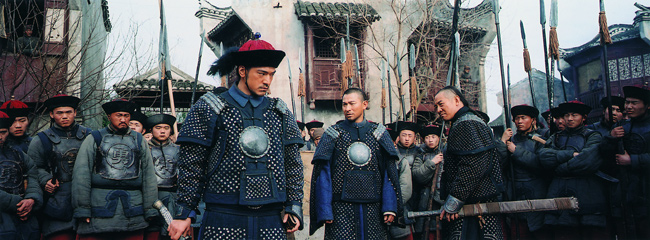 FA: Do you think you can keep your Hong Kong identity in the Chinese market?
FA: Do you think you can keep your Hong Kong identity in the Chinese market?PC: The Hong Kong identity is in my blood. It doesn't matter what I make or where I make movies, the core value system, the attitude, and the aesthetics will always be Hong Kong. That peculiar Hong Kong attitude and aesthetics will never change, even if I make an English language movie or a French language movie. So it doesn't matter what we do, and it doesn't matter what the censorship restrictions are, and it doesn't matter who the market is for. You don't have to do a movie in Cantonese to be "Hong Kong" because the Hong Kong-ness is in my system. It will not disappear.
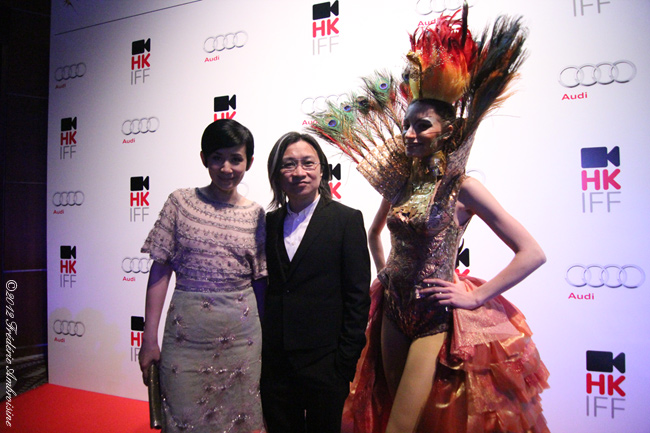
FA: Jimmy Wang Yu, who was in your last movie, was a big star in the 60's as the One-Armed Swordsman character in Chang Cheh's movies. Were you a big Shaw Brothers movie fan?
PC: I was a big Shaw Brothers movie fan. Even though I didn't quite identify myself as a kung-fu film fan, which I wasn't. But no kids born in the 50's or 60's could ignore Chang Cheh or the Shaw Brothers martial arts films. It doesn't matter if you grow up to make love stories, dramas, romances or even art films, we've all grown up watching action movies from Chang Cheh, and the kind of heroism he's so good with, and all his big screen idols from Jimmy Wang Yu to David Chiang to Ti Lung: it was just a part of our growing up.
Interview conducted by Frédéric Ambroisine on March 21st, 2012. Edited by Sylvia Rorem. Cross-published on AliveNotDead.
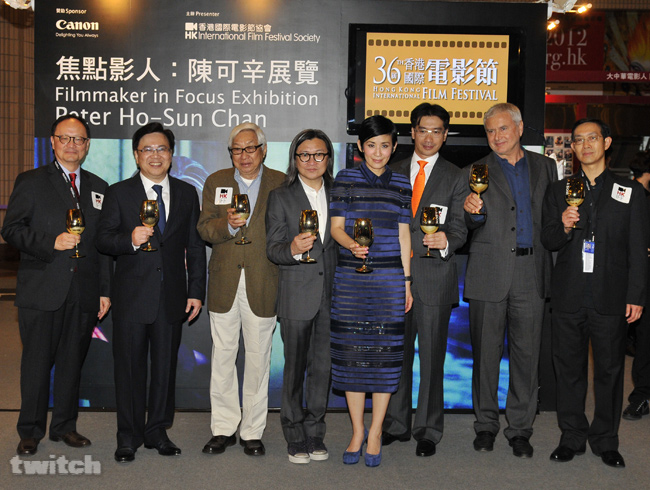










Do you feel this content is inappropriate or infringes upon your rights? Click here to report it, or see our DMCA policy.


